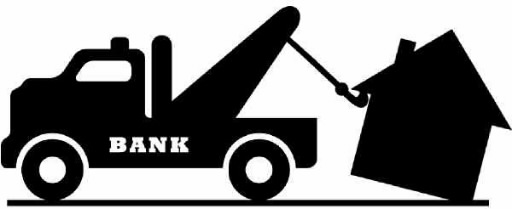 Top Class Actions
Top Class Actions
What’s the word de jour? Foreclosure—actually—make that Foreclosure Class Actions. This week saw several foreclosure lawsuits filed against big banks. Possibly the most recent, was filed against BAC Home Loans Servicing, which is a subsidiary of Bank of America Corporation, and successor in interest to Countrywide Home Loans Servicing; Deutsche Bank National Trust Company; and U.S. Bank National Association. The suit was filed on behalf of all those property owners who lost title to their property in foreclosure proceedings based on false and perjurious affidavits filed by the banks and their servicing companies.
Perjurious affidavits? What the heck are those, you ask? Well like everything, foreclosure is a business—a business that seemingly works on volume. Apparently, the banks have been hiring so-called “robo signers” or “affidavit slaves”—employees who literally sign hundreds of foreclosure documents a day, according to the Wall Street Journal, without carefully reviewing their contents. The Washington Post recently ran a story on a man who has signed as many as 10,000 foreclosure documents in one month.
Back to the lawsuit. The BAC suit alleges that the defendant banks obtained wrongful foreclosures by abusing the court process and submitting affidavits that were false, even though sworn to under penalty of perjury, as the basis for obtaining foreclosure judgments. They seek to restore title to the property owners.
Another foreclosure class action filed this week also named the omnipresent Bank of America (BoFA) as a defendant, not surprising since BoFA reportedly holds one in five mortgages in the US. The case, filed in New Jersey, alleges Bank of America has filed foreclosure proceedings on many mortgages in New Jersey without holding the necessary rights as the mortgagee or assignee at the time of foreclosure, the suit says.
“Many thousands of foreclosures are plainly void under statute and settled New Jersey case law. Many borrowers never obtain statutorily required notices, and many foreclosure suits are filed entirely based in inaccurate recitations concerning ownership of the mortgage, the note, or the assignment,” the suit says.
The putative class in the suit, Beals v. Bank of America, N.A., 10-cv-05427, consists of all named defendants in pending New Jersey foreclosure actions initiated by Bank of America or its affiliates. The complaint includes counts of common-law fraud, breach of the covenant of good faith and fair dealing and violations of the New Jersey Fair Foreclosure Act and Consumer Fraud Act. That’s some laundry list, even for banks.
I guess they had to find the money for those executive bonuses somehow.
Top Settlements
More than a Clear Signal…a Clear Bill. This week saw Verizon Wireless agree to pay $52 million plus at least $52.8 million in refunds to customers as settlement of allegations that the company charged millions of dollars in “pay-as-you-go” data fees for data usage from November 2007 to the present. And, you guessed it, the charges weren’t on the up-and-up. The FCC reportedly found some 15 million customers affected by the overcharges.
The settlement set a record—the largest in FCC history, apparently. “Today’s settlement requires Verizon Wireless to make meaningful business reforms, prevent future overcharges, and provide consumers clear, easy-to-understand information about their choices,” FCC’s Enforcement Bureau Chief Michele Ellison said in a statement.
Yeah? I’ll believe it when I see it.
Quality Control an Oxymoron at GSK? Another very large settlement was reached this week. This time with pharmaceutical giant GlaxoSmithKline, who agreed to pay $750 million as settlement of charges that they produced and marketed defective drugs. Sorry, adulterated drugs. One loses track…
The settlement ends the longest running federal investigation of the pharmaceutical company’s former manufacturing plant in Puerto Rico. GSK closed the plant in 2009, and no longer owns it.
Allegations brought by the federal government included mixing different pill strengths, such as 10 mg and 30 mg tablets in the same bottles. Why stick to the prescribed dosage anyway? And that the medications Bactroban and Kytril, were contaminated with microorganisms.
Further, there were allegations that GSK’s drug Paxil CR (controlled release) which was made in two layers, could fall apart, effecting the efficacy of the medication. Yes, that could certainly cause some problems. In all some 20 drugs were reportedly affected, including Avandia, Coreg, Paxil and Tagamet.
Cheryl Eckard, a former manager of quality assurance for GSK will receive some $96 million from the settlement. She became the whistleblower, which ultimately resulted in her being fired.
Ok – that’s it for this week. My whistle needs whetting… and the bar is singing my name.
